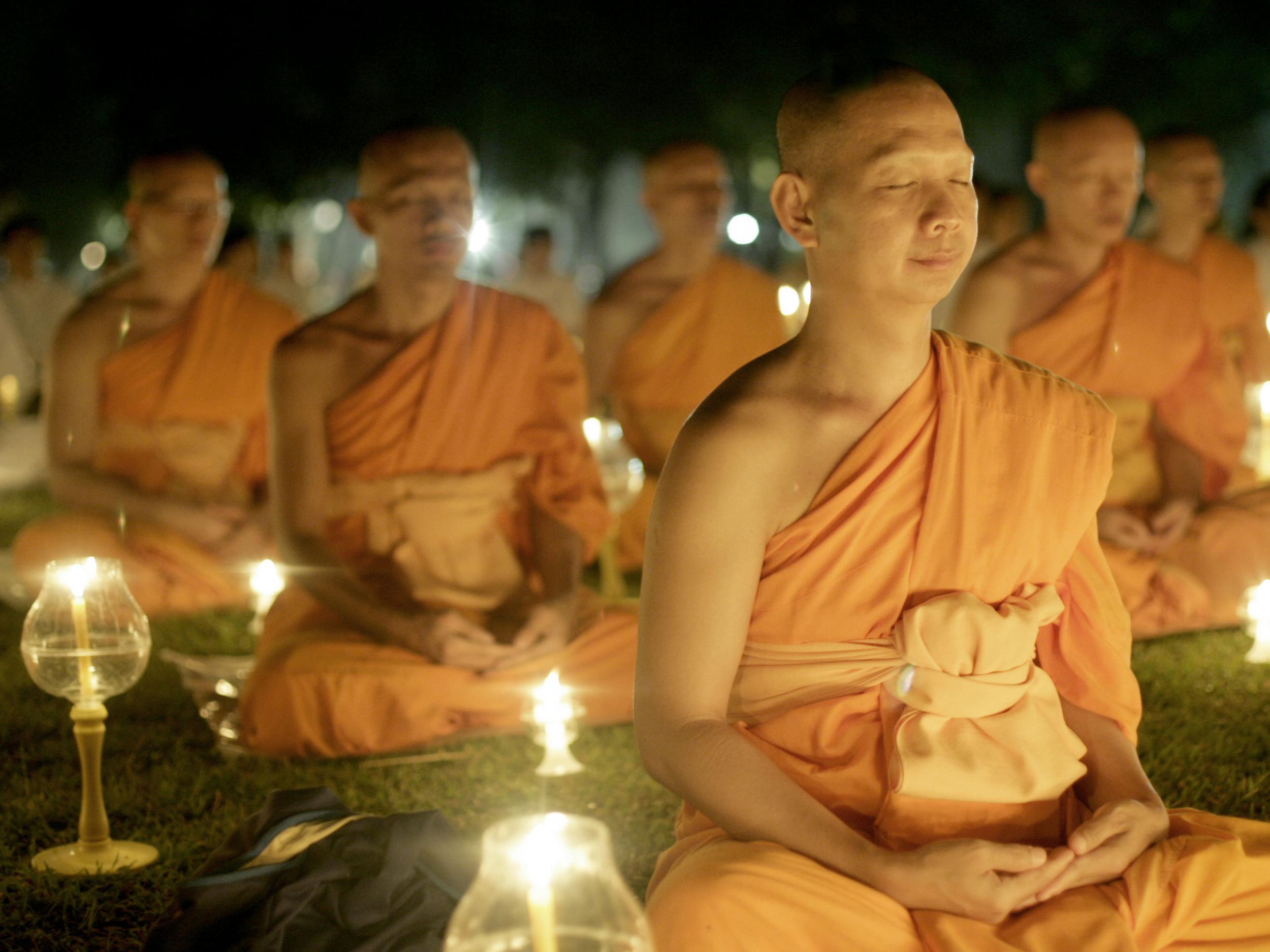Religious people live four years longer than atheists, study finds
Abstinence, meditation and social ties may all be a factor in increased longevity

Your support helps us to tell the story
From reproductive rights to climate change to Big Tech, The Independent is on the ground when the story is developing. Whether it's investigating the financials of Elon Musk's pro-Trump PAC or producing our latest documentary, 'The A Word', which shines a light on the American women fighting for reproductive rights, we know how important it is to parse out the facts from the messaging.
At such a critical moment in US history, we need reporters on the ground. Your donation allows us to keep sending journalists to speak to both sides of the story.
The Independent is trusted by Americans across the entire political spectrum. And unlike many other quality news outlets, we choose not to lock Americans out of our reporting and analysis with paywalls. We believe quality journalism should be available to everyone, paid for by those who can afford it.
Your support makes all the difference.Religious people live on average four years longer than their agnostic and atheist peers, new research has found.
The difference between practising worshippers and those who were not part of a religious group could be down to a mix of social support, stress-relieving practices and abstaining from unhealthy habits, the authors suggest.
For the study, a team of Ohio University academics, including associate professor of psychology Christian End, analysed more than 1,500 obituaries from across the US to piece together how the defining features of our lives affect our longevity.
These records include religious affiliations and marriage details as well as information on activities, hobbies and habits, which can help or hinder our health, not otherwise captured in census data.
The study, published in Social Psychological and Personality Science today, found that on average people whose obituary mentioned they were religious lived an extra 5.64 years.
Life expectancy was still 3.82 years longer in religious people when they statistically controlled for marriage rates, a factor which has been shown to increase life expectancy and help stave off disease.
“The study provides persuasive evidence that there is a relationship between religious participation and how long a person lives,” said Baldwin Way, co-author of the study and associate professor of psychology at Ohio State University.
The major part of the study used more than 1,000 obituaries from newspapers in 42 states. But a further analysis of 500 obituaries from the Des Moines Register, a paper in Iowa, found the effect was more pronounced and religion was associated with an extra 6.48 years of life, suggesting living in a more religious area might have an extra effect.
Religious participation often goes hand-in-hand with increased participation in activities and social groups, which might help tackle loneliness and sedentary lifestyles that could also shorten life expectancy.
But analysis of activities mentioned in the report found this accounted for a fraction of the effect.
“We found that volunteerism and involvement in social organisations only accounted for a little less than one year of the longevity boost that religious affiliation provided,” said Laura Wallace, the study’s lead author.
“There’s still a lot of the benefit of religious affiliation that this can’t explain.”
The authors suggested that the remaining life expectancy might be a result of religious people being more likely to abstain from alcohol and drug use and other behaviours that could affect life expectancy – though these were not regularly recorded in obituaries.
There also may be a benefit of “stress reducing practices” such as meditation, yoga or prayer, Dr Way added.
Join our commenting forum
Join thought-provoking conversations, follow other Independent readers and see their replies
Comments